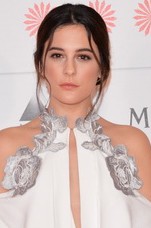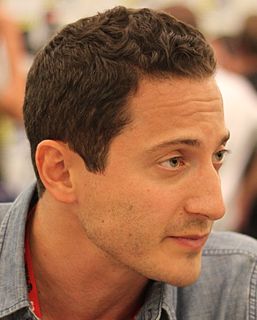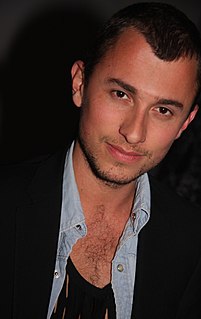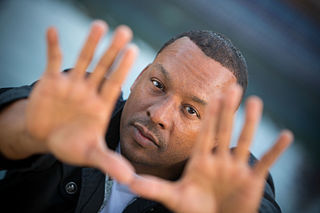A Quote by Darren Aronofsky
At the end of Requiem all I wanted to do was get a DV camera and just do a small film. But then the hunger comes back.
Related Quotes
The camera course was a bit crap. But when I was in drama school, I wasn't interested. I wanted to be a stage actress. I was not interested in learning camera craft. But then you throw yourself in the deep end when you do get a job in front of the camera because you have absolutely no idea what you're doing, and it is a skill.
When I was young, my mother [folk singer Kate McGarrigle] brought home this recording of Verdi's Requiem and we listened to it from top to bottom. By the end of it, I was a completely different person. It was literally a requiem mass for my former self. I was about 12 or 13. The Requiem just totally hooked into what I was going through emotionally - discovering my sexuality right at the time when AIDS was devastating my community and dealing with intense parental situations.
I went to theatre school for four years and just wanted to do theatre. I had no ambition to be on TV or to be on camera. I just wanted to go to New York or London and be on stage... I did a lot of theatre in Montreal, got involved in TV in Toronto and then moved to L.A. I hope that film and TV will take me back to theatre.
If you need to strap a camera to you or get in a small space, then it makes sense to use digital.I do think it is possible to use a digital camera artistically, but it can only be good if you are using film technique. Film has grain, and digital has pixels, and there is not that much of a difference, but digital does not replace the need to create a scene and light it properly and spend time considering the shot.
I'm a film guy. I love it. When I read the screenplay, I knew that there would be no HD camera that could achieve the look that I wanted for this film. I wanted it to be dirty, and 16mm provides all of that with the look and the grain. That's what I worked for, and that's what I wanted, and that's how I'd seen the movie in my mind.





































